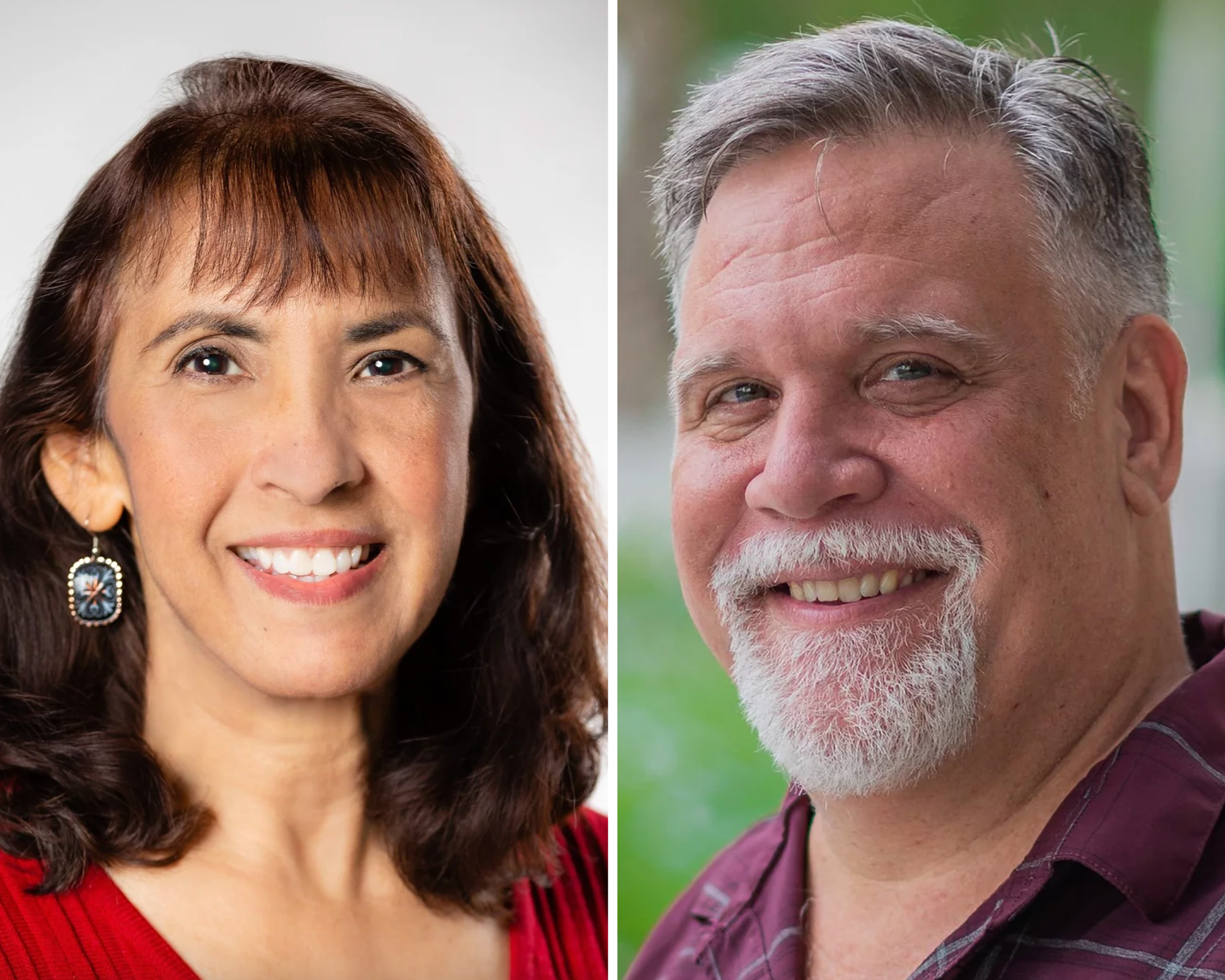Hablando de herencias: USF professors mix culture and food in published book

When social sciences professor Bárbara Cruz came to USF in 1991, she never believed her time as an English language learner (ELL) and educator would overlap. But over two decades later, she still found challenges between her native language and her English-speaking job.
“In 2015, I was approached and asked ‘How do you teach [social studies] if a kid doesn’t know English?’ There was nothing at the time written for social studies teachers,” she said. “I had to start a new line of research 24 years in.”
Cruz was born in Cuba and immigrated to Miami as a child. Before coming to USF, she attended the University of Miami and Florida International University. She credits her desire to teach to the diverse course load she took on in college.
“I was interested in a lot of different things. I was interested in psychology, law, I was a dance minor even,” Cruz said. “But I kept taking all these classes and I realized that the thing I loved the most was that I loved learning. And then I loved communicating that passion to others.”
Writing books was a practice Cruz was accustomed to during her time as an educator. So when Andy Huse, curator of Florida Studies collections at USF libraries, approached her about writing “The Cuban Sandwich: A History in Layers,” she was excited to join in.
“When he reached out to me, I thought it combined two specific interests I love — history and food,” she said. “I also happen to be Cuban, so it was a natural triangulation with all those things colliding.”
Born in Chicago and raised in Clearwater, Huse came to Tampa to study creative writing at USF. He later realized his passion for storytelling came from an appreciation of historical context.
“History is what makes writing meaningful for me. I decided that fiction wasn’t really a meaningful exercise for me,” Huse said. “And to make it meaningful, it had to be attached to real people.”
The position of librarian was one Huse said he didn’t initially seek out. As a student looking for hours, he started at the media center filling in for a friend and slowly took on bigger roles.
Huse and Cruz’s friendship grew from a faculty trip to Spain in 2006, and they have remained close ever since. The two collaborated alongside Edible Tampa Bay writer Jeff Houck to take a deep dive into the origins of the Cuban sandwich, as well as the individuals across the world working to keep its history alive.
Pulling back the curtain on the hidden art of sandwich making did not come without its obstacles, Huse said, such as finding contacting sources to use for the book.
“We wanted to interview a lot of people from famous restaurants, as well as restaurants that were more hidden,” Huse said. “We wanted our book to be based on evidence and actual interviews. But it can be very difficult to reach people to let them know that you’re legit.”
The book got the green light in March 2020, which made the interviewing process difficult since in-person meetups now had to be conducted virtually.
This required using whatever technology was available, such as WhatsApp, for interviewing those outside the U.S. One goal they were not able to reach was going overseas to the libraries in Cuba.
“We would have loved to have gone over there and seen what they had,” Cruz said. “COVID made that a challenge, but just the relationship between the United States and Cuba [already] makes it difficult to go.”
Problems showed up at the very basics of research, Huse said. The language barrier meant that commonplace words in English would often not have a Spanish counterpart, such as the word sandwich.
On the other end of the spectrum, Cruz was able to find a new opportunity to integrate her Cuban heritage with her work.
“Every once in a while from an insider’s perspective, I would share with [Andy and Jeff] a particular Cuban superstition or saying,” Cruz said. “Those were the fun times because that’s how you really dig deep into a culture. Those are the things that give you insight.”
Though the majority of the writing was conducted during the lockdown, they both said the prospect of sharing ideas and joking around with each other made the experience feel more involved, and it created fond personal memories that have lasted beyond their work.
Writing this book has been an unconventional continuation of the ever-evolving research her work requires, but Cruz said she wouldn’t trade the experience for anything.
“I didn’t know English when I came to the United States. As I became an educator, never in a million years did I think that I was going to work on ELL research,” Cruz said.
“Then Andy came to me and said ‘Hey, how about we take on this Cuban sandwich research project?’ That’s not a part of what I do, but I’m certainly glad I did it. It’s been an incredibly fun time, it’s been enjoyable and I’ve learned a tremendous amount.”







